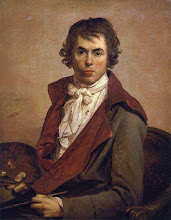Aside from being economically out of touch (gosh I hate cliches, but here I am using one), the single biggest criticism of celebrities is that they are vapid and don't know much about politics. So, why introduce a celebrity into the political climate in the first place?
Well, an easy answer might be that it all goes back to Pop Culture Critics definition of media bias - whatever sells most. Celebrities are big draws. Anna Nicole's death dominated news coverage for what seemed like eternity as an example. Perhaps, though, celebrities and politicians have a few things in common that transcend simple marketing principals.
Politicians, like celebrities, are sometimes very charismatic. They exude an often toxic blend of confidence and arrogance that the masses seem to eat up. Perhaps no more so than Obama, who's confidence and arrogance have been not only an odd part of his message - audacity - but also a major criticism of his image. This is, of course, on top the weird double narrative his campaign is projective. That his presidency is not about him, it is about us. This inclusion, I think, among other things plays into the second thing that celebrities and politicians have in common.
Voyeurs. Power attracts all sort of strange and odd people. Yet, strange and odd people still have a vote. And in a democracy every person you can attract gives you a better chance. So, it seems only natural that politicians would cling to celebrities. They are well documented attracters of people (read votes).
So celebrities sell papers and attract votes. And although they may know absolutely nothing about the issues, through those two things they seem to serve an increasingly important part of the process.


7 comments:
[i]So celebrities sell papers and attract votes.[/i]
Do they attract votes? We can assume they sell papers (as Star, People + the NY Post do /very/ well). But is there any proof that they attract votes? Even anecdotal proof? Have you ever actually heard someone say, "Sean Penn votes Democrat, so my vote is for Obama?"
you're right mordy
my calculation is based on their attraction of people. perhaps instead of straight out votes, maybe all I can/should claim is that they attract attention.
Speaking of celebrity endorsements, my favorite is Zizek's:
http://jdeanicite.typepad.com/i_cite/
"The talk was about civility and its obscene underside. He had an illustration/digression on Kung-Fu panda that was very entertaining. And he reiterated his endorsement of Obama."
I'd love to see what his endorsement was.
Celebrities have the advantage of already having there name out there. Often when people head to the ballot box if they haven't been following election coverage at all, they will choose the name that they recognize. The celebrity has that advantage.
What Steven writes happens to be true, although only to a point. But is he guessing at this, or can he point to a citation for it, or offer some evidence for the claim?
The further we progress this semester, the more I will expect evidence to be offered for almost any claim you all want to make. . . . Teevee commentators are allowed (even encouraged) to offer opinions whether they actually know anything about the subject or not, and tend to reflexively repeat "truisms" or the CW (conventional wisdom). The goal is often for it to simply *sound* true or advance a compelling narrative -- this dynamic is what Stephen Colbert has referred to as "truthiness." It's a concept worth taking seriously, and we will. . .
PS: not only might voters simply choose the name they recognize, they are more inclined to choose the name that is listed first on the ballot. True, alas.
I thought the CW was a bad public television channel that ran America's Next Top Model?
Um, by bad television network I'm guessing you mean an AMAZING television network that airs Gossip Girl and 90210.
Post a Comment